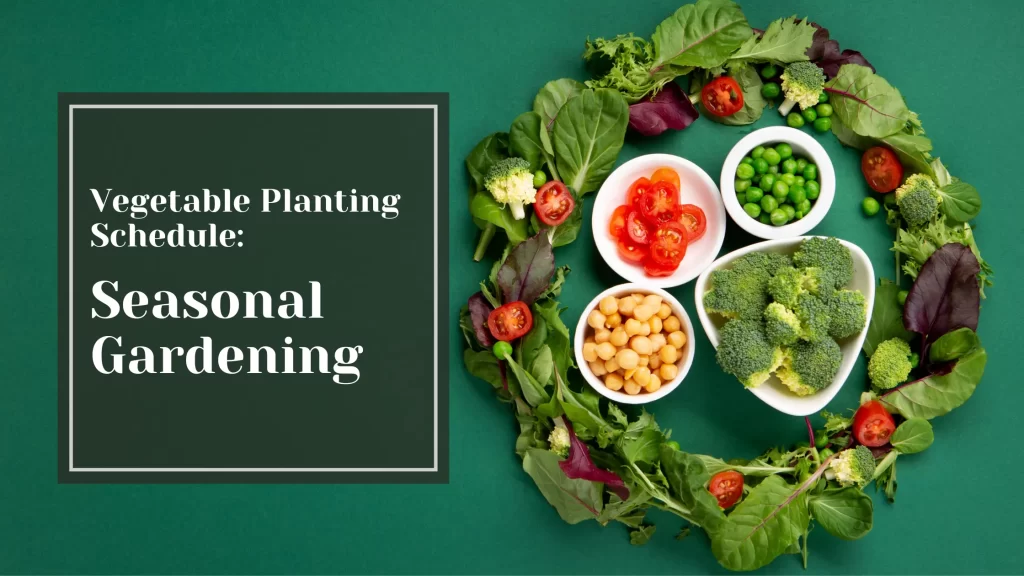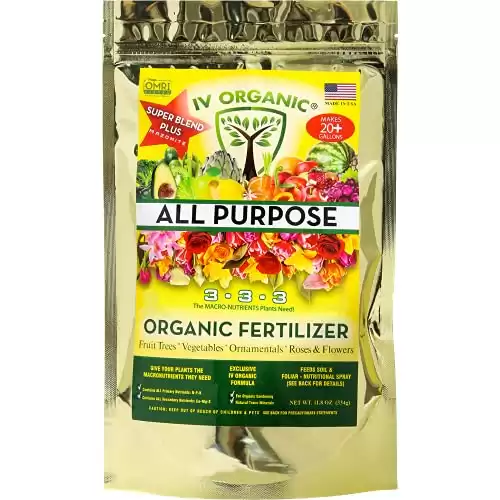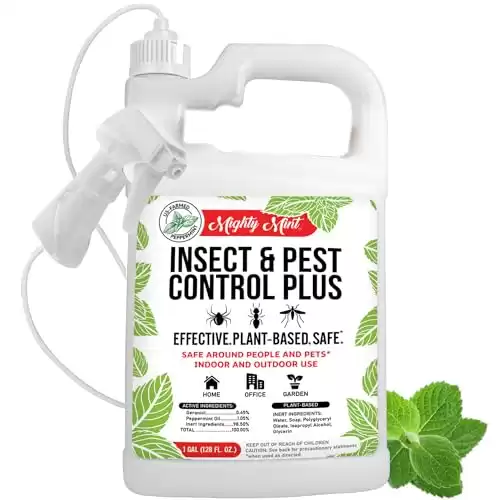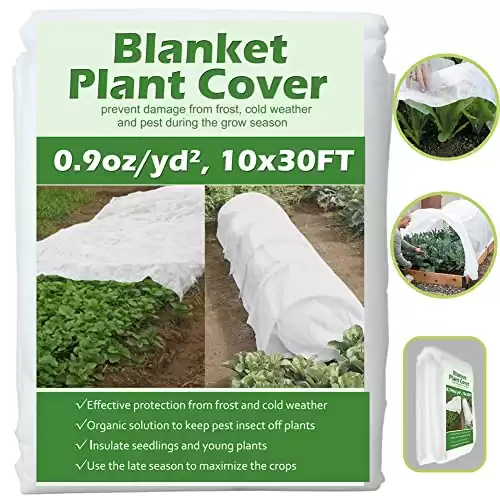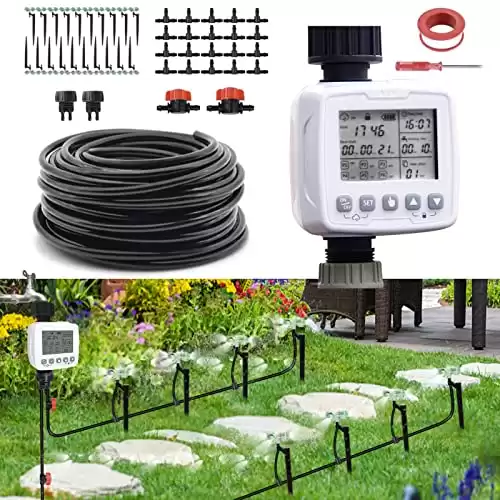Welcome to our Seasonal Crop Planting Guide, a quick and effective resource for cultivating crops all year round. Whether you’re a seasoned gardener or just starting your journey into planting, this guide will help you navigate the simple intricacies of each season, providing detailed insights into the best crops to plant, soil preparation techniques, planting tips, and care practices. Delve into our guide, catering to roles like Farmer, Greenhouse Manager, and Agriculture Specialist, illustrating how their work aligns with seasonal planting cycles.
Table of Contents
ToggleSpring Planting
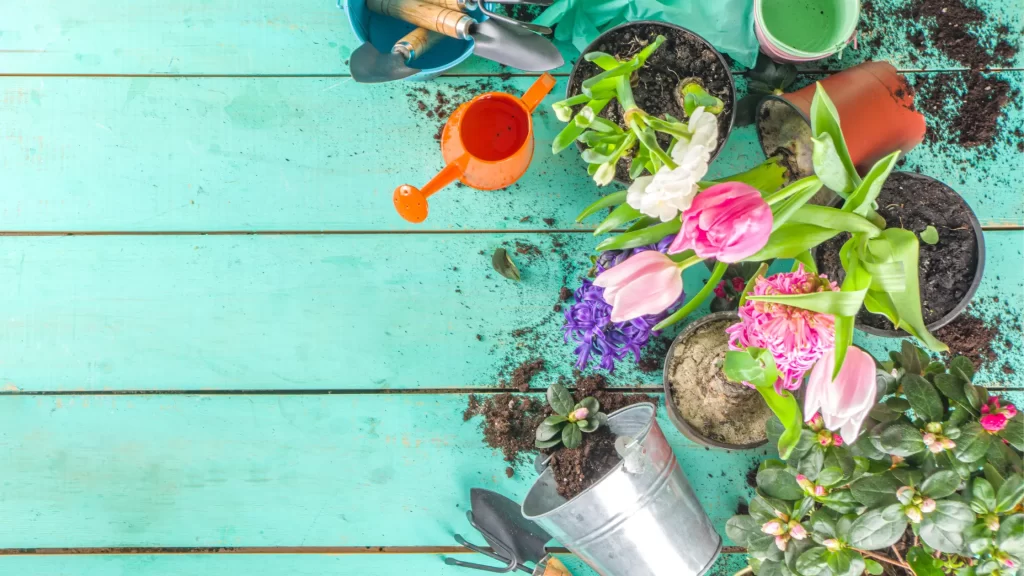
As the world awakens from winter’s slumber, so does your garden. Spring is the perfect time to kickstart your planting endeavors. Consider these springtime crops:
Leafy Greens
Spinach, lettuce, kale, and arugula – These nutrient-packed greens thrive in the moderate temperatures of spring. Ensure well-draining soil and provide ample sunlight.
Root Vegetables
Carrots, radishes, beets, and turnips – Sow these early in spring. Loosen the soil to encourage proper root development and water consistently.
Herbs
Basil, cilantro, parsley, and dill – Flourish during spring. Choose a sunny spot and sow seeds or transplant seedlings for a fragrant herb garden.
Peas
Snap peas and snow peas – These cool-season legumes can be planted directly in the soil. Provide support for climbing varieties.
Strawberries
Plant strawberry crowns or runners in well-draining soil with plenty of sunlight. Mulch around plants to retain moisture.
Tips for Spring Planting
- Start seeds indoors for a head start.
- Watch out for late frosts; cover delicate plants with frost cloths if necessary.
- Use organic fertilizers to promote healthy growth.
Revitalize your spring garden with IV Organic All Purpose Premium Blend Fertilizer (4 lbs). Nourish leafy greens, root veggies, herbs, peas, and strawberries for robust growth. Protect against late frosts and promote health with this organic fertilizer. Plant with confidence this spring!
Summer Planting
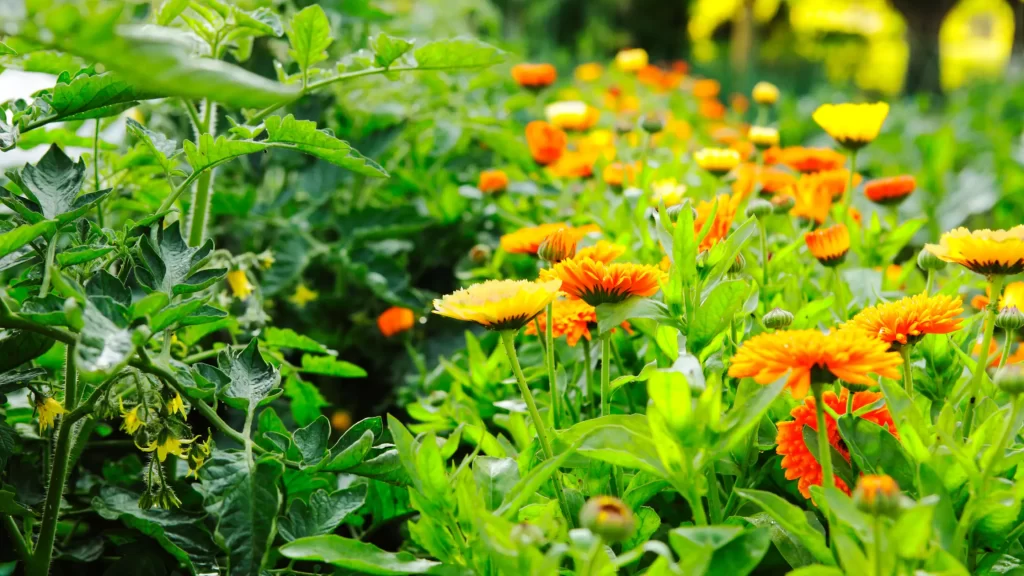
Your garden can burst into a kaleidoscope of colors and flavors as temperatures rise. Here are some summer crops to consider:
Tomatoes
Tomatoes, a summer garden staple, require well-drained soil and plenty of sunlight. Consider staking for support as the plants grow.
Peppers
Bell peppers, chili peppers, sweet peppers, and eggplant – These heat-loving plants thrive in the summer. Provide consistent watering and feed with a balanced fertilizer.
Cucumbers
Cucumbers are a vine-loving vegetable that loves the summer heat. Plant them in hills or rows, and ensure they receive adequate water for optimal fruit production.
Beans
Bush beans and pole beans – Plant after the last frost in well-draining soil. Provide support for pole varieties and water consistently.
Basil and Mint
Basil and mint are some summer-friendly herbs that love the warmth. Plant in containers or in well-drained soil and harvest regularly to encourage bushier growth.
Tips for Summer Planting
- Water deeply to combat the heat.
- Mulch around plants to retain soil moisture.
- Be vigilant for pests; use organic pest control methods.
Elevate your summer garden with Insect & Pest Control Plus, a natural mint oil repellent and insect killer spray in a 1-gallon size. As your garden bursts into vibrant hues and flavors, safeguard your tomatoes, peppers, cucumbers, beans, basil, and mint from pests. Combat the heat with deep watering and retain crucial moisture by mulching. Stay vigilant against pests using this organic solution, ensuring a thriving summer harvest.
Fall Planting
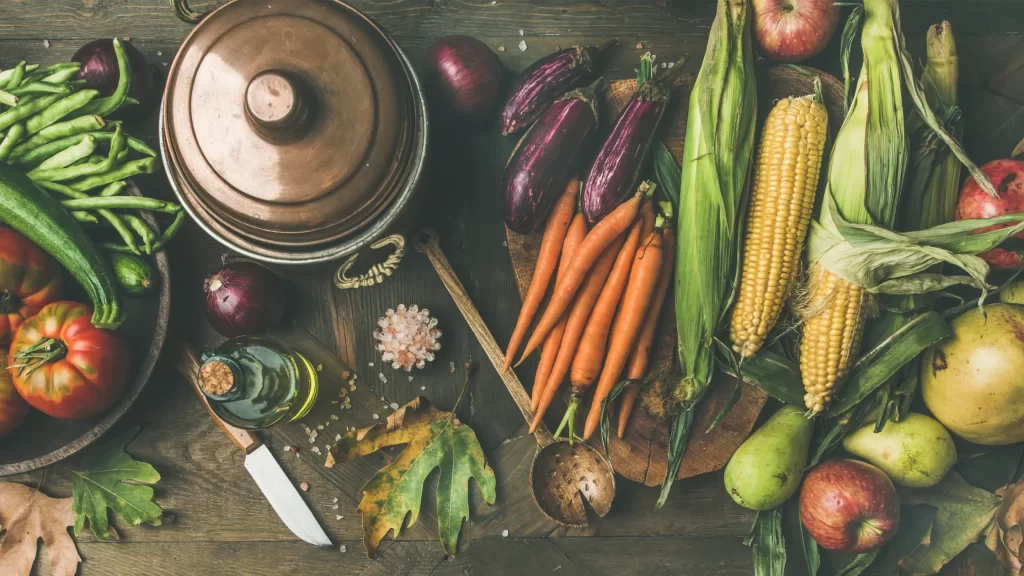
As the days shorten and temperatures cool, fall becomes a second planting season. Make the most of it with these crops:
Brassicas
Broccoli, cauliflower, brussels sprouts, and cabbage all thrive in the cool fall temperatures. Amend the soil with compost for nutrient-rich growing conditions.
Root Vegetables
Carrots, radishes, turnips, and garlic all make for a great fall harvest. Be sure to protect them from frost with row covers if needed.
Leafy Greens
Spinach, lettuce, Swiss chard, and mustard greens are bountiful in the fall. Consider using cold frames for added protection.
Kale and Collards
Kale and collards are particularly cold weather-friendly. These hardy greens become sweeter after a light frost. Be sure to plant them in well-drained soil.
Garlic and Shallots
Plant cloves and edible bulbs, such as shallots and other onion varieties, in the fall for a summer harvest. Provide well-draining soil and mulch for good insulation.
Tips for Fall Planting
- Consider row covers to protect crops from early frosts.
- Apply a layer of compost to nourish the soil during winter.
- Clean up debris to prevent overwintering pests.
Ensure a thriving fall garden with Valibe Plant Covers (10FT x 30FT). Protect your brassicas, root vegetables, leafy greens, and more from early frosts using this durable floating row cover. Enhance soil conditions with a layer of Winter Nourish Compost for nutrient-rich growth. Prevent overwintering pests effortlessly by cleaning up debris. Maximize your fall planting success with these versatile plant covers
Winter Planting
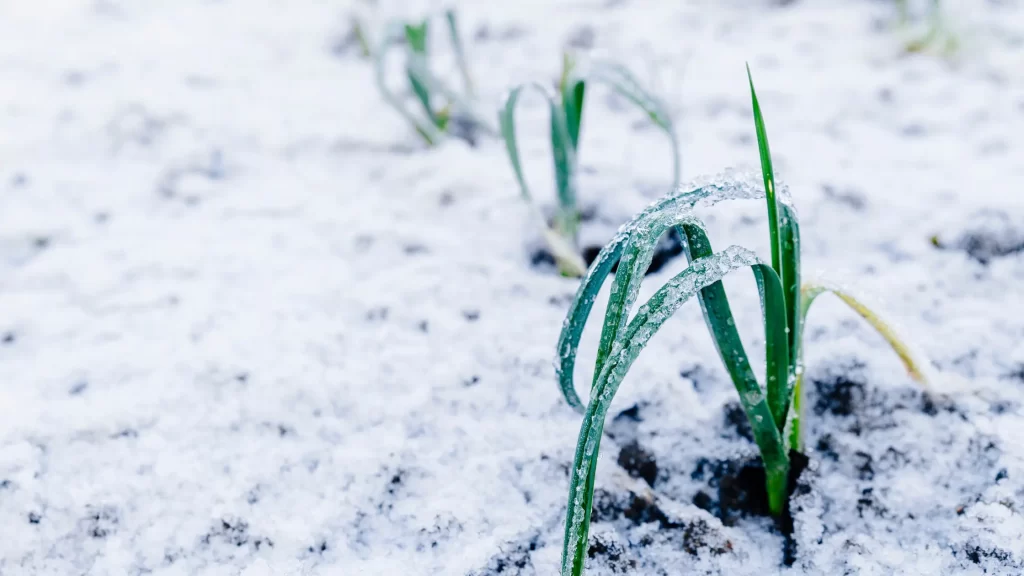
While winter is often seen as a dormant period, there’s still plenty of opportunity for planting cold-hardy crops:
Leafy Greens
Winter varieties of spinach and kale can withstand fairly heavy frost. Cold frames or row covers can provide added protection as well.
Root Vegetables
Winter carrots, parsnips, and potatoes stay in the ground, protected from frost and snow. They can provide a fresh harvest even in even the coldest climates.
Cover Crops
Cover crops like winter rye or clover can protect and enrich the soil during the winter months, ensuring good nutrients for spring planting.
Tips for Winter Planting
- Monitor soil moisture, as plants still require water during winter.
- Protect plants from harsh winds with barriers or row covers.
- Rotate crops to prevent disease buildup.
Embrace winter planting with the Suertree Automatic Plant Watering System. Ideal for cold-hardy crops like leafy greens and root vegetables, this 65.5ft drip irrigation kit ensures plants receive essential moisture. Protect against frost and heavy snow with the included sprinkler timer. Safeguard your garden's health by monitoring soil moisture, shielding against harsh winds, and effortlessly rotating crops. Elevate your winter gardening experience with this automated solution.
Ready for Any Season!
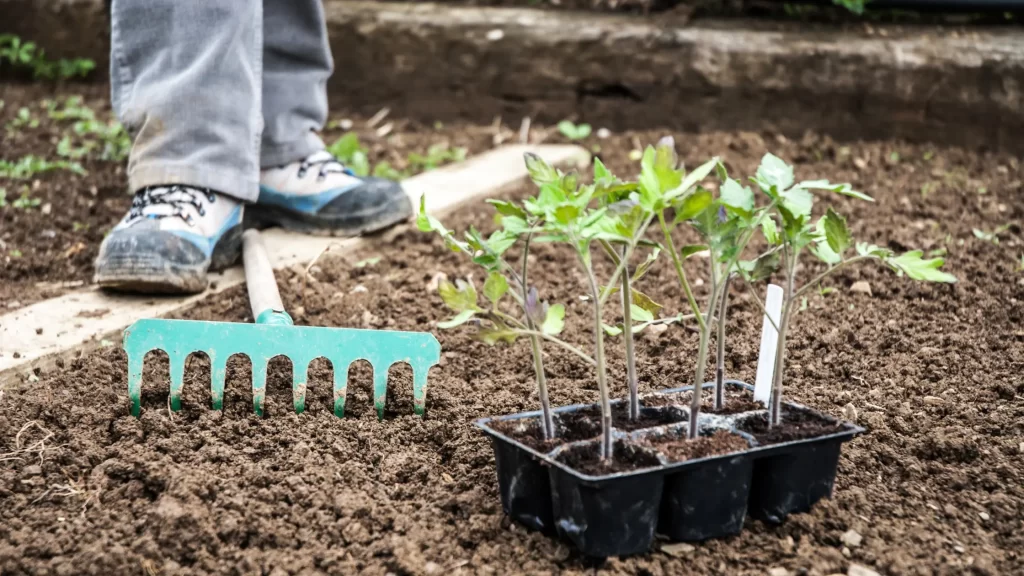
Follow our Planting Guide, and you’ll transform your garden into a year-round haven of fresh produce. Remember to adapt to your specific climate and conditions, and don’t be afraid to experiment with different varieties. Happy planting, and may your harvests be plentiful!
For additional insights, explore topics like Fall Home Maintenance Checklist, Mulch 101: Lawn Care Essentials, and Sun Protection for Landscaper. Happy planting, and may your harvests be plentiful!
Frequently Asked Questions
When Is the Best Time to Follow the Vegetable Planting Schedule for Optimal Results?
The guide recommends specific crops for each season, ensuring success with your vegetable planting schedule.
Can I Plant Tomatoes and Peppers Using the Recommended Schedule, and What Care Do They Need in Summer?
Absolutely! Find detailed tips on cultivating tomatoes and peppers during summer, including soil requirements and care practices.
What Are the Key Considerations for Fall Planting of Root Vegetables like Carrots and Turnips?
Discover insights on ideal fall conditions, protective measures against frost, and the importance of well-draining soil for successful root vegetable harvests.
Are There Specific Winter Crops Suggested in the Guide, and How Can I Ensure a Productive Winter Garden?
Learn about cold-hardy crops like winter greens and root vegetables and tips for maintaining soil health and protecting plants during winter.
How Can I Adapt the Vegetable Planting Schedule to My Local Climate for a Thriving Year-Round Garden?
The guide encourages adapting to specific climates. Gain insights on tailoring the schedule to your region and experimenting with different crop varieties for a successful harvest

